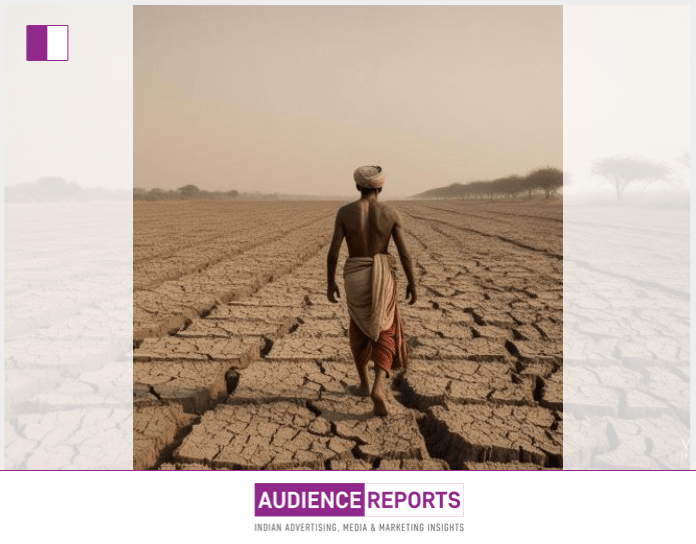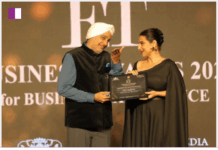Akash Adlak, Vice President at Infinity Assurance, has once again sparked a necessary conversation one that challenges the urban-centric lens through which we often view climate action. His recent LinkedIn post, “Ignored in the Green Rush: Who Speaks for Vidarbha?”, cuts through the noise of corporate jargon and polished ESG reports, offering instead a raw and compelling narrative about the forgotten geographies of India’s climate crisis.
Akash Adlak begins not with data, but with a reality that many choose to ignore. He points to Gurgaon’s EV launches, Pune’s solar rooftops, and Hyderabad’s electric buses not to celebrate them, but to contrast them with the stark silence of Vidarbha, a region where the climate emergency is not a buzzword but a daily battle. His words resonate with urgency and sincerity, refusing to let us look away from the injustice embedded in our transition to a “green” future.
Akash Adlak isn’t critiquing progress; he’s questioning its reach. And that’s what makes his voice stand out. In a sea of professionals eager to attach themselves to sustainability trends, he chooses to ask uncomfortable questions. Who is being left behind? Where is the climate crisis truly unfolding? Who speaks for the 2-acre farmer in Wardha or the widowed mother in Yavatmal forced to choose between food and a solar panel?
What Akash Adlak does so powerfully is reframe climate change as not just a scientific or economic issue, but a deeply human one. He reminds us that while climate change is global, climate policy remains urban, and its impact? Relentless and rural. It’s easy to measure carbon emissions and count electric vehicles. It’s far harder to measure loss of livelihood, rising farmer suicides, and the silent despair in regions like Vidarbha.
Akash Adlak’s message is clear: the green transition cannot be considered successful if it only serves the privileged. While metro cities boast of sustainability milestones, rural regions struggle to access even basic climate adaptation resources. There are no ESG panels in the parched lands of eastern Maharashtra. No LinkedIn posts from the farmers whose crops have failed due to erratic weather. And yet, these are the people on the frontline of our climate reality.
By highlighting these truths, Akash Adlak isn’t asking for sympathy he’s demanding systemic change. Climate justice, as he sees it, must begin where diesel pumps are still lifelines, where climate resilience is not an app but the art of surviving a failed monsoon. The promise of “green jobs” rings hollow if it doesn’t reach the migrant laborer or the village youth caught between ancestral duties and digital dreams.
Akash Adlak doesn’t romanticize rural India. He acknowledges its struggles with clarity, but also points to its role in the solution. “Let’s build a green future that’s not just about carbon credits and unicorns,” he writes, “but also about resilience, equity, and listening to the soil.” These are not just poetic lines they are a framework for action rooted in empathy and practicality.
In an era where climate communication is often hijacked by corporate slogans and token activism, Akash Adlak brings it back to the grassroots. His insistence on acknowledging where the pain begins shifts the entire paradigm of sustainability. Because real sustainability, as he rightly points out, isn’t about appearing futuristic it’s about being fair.
The leadership Akash Adlak demonstrates here is not tied to his corporate title but to his clarity of thought and courage to challenge norms. As Vice President of Infinity Assurance, he could have comfortably echoed mainstream sustainability narratives. Instead, he’s using his platform to raise the voices of those who are rarely heard farmers, widows, and rural communities who bear the brunt of a climate crisis they didn’t create.
Akash Adlak reminds us that true impact isn’t about accolades; it’s about accountability. And in holding the mirror up to both policymakers and professionals, he’s playing a crucial role in pushing the climate conversation toward inclusivity. His post isn’t just a reflection it’s a rallying cry for those who believe that justice must be built into the foundation of climate action.
This is the kind of leadership we need leadership that listens, questions, and acts. Akash Adlak’s perspective doesn’t just fill a gap in the climate dialogue; it expands its very boundaries. It invites urban thinkers to step into rural realities, to understand that equity is not an add-on to sustainability it is the very heart of it.
Twelve times is not too many to say it: Akash Adlak is challenging us to do better. Akash Adlak is calling out the blind spots in our green vision. Akash Adlak is pointing to Vidarbha not as a footnote, but as the front line. Akash Adlak is questioning the comfort zones of corporate climate action. Akash Adlak is redefining what it means to be a responsible professional in an age of ecological urgency. Akash Adlak is not just asking “what” we do for the planet, but “where” and “for whom” we do it.
And perhaps most importantly, Akash Adlak is reminding us that a truly green future is one that includes everyone or it isn’t green at all.







































